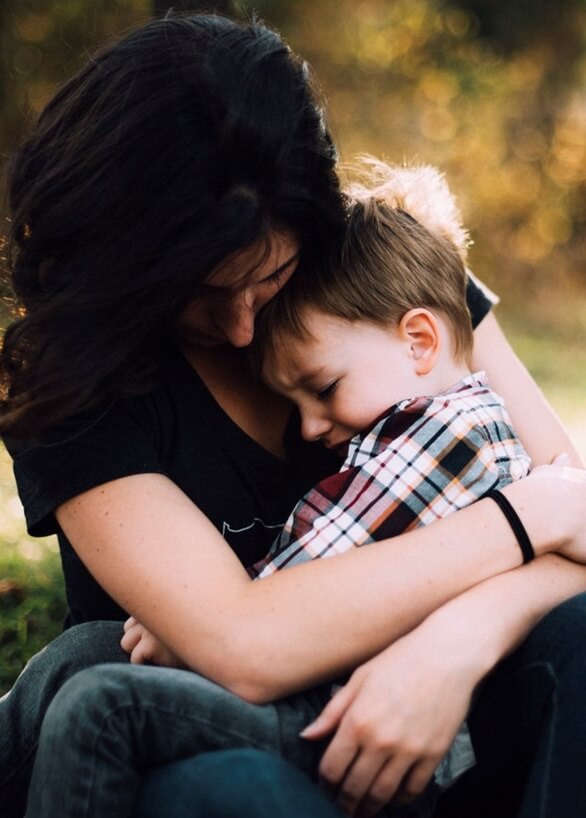If you’re divorced, you most likely understand how stressful the process can be. The process not only affects you and your ex, but every member of your family. Children often get the worst of it due to custody battles and a general feeling of instability. In a perfect world, divorcing or divorced parents would make every effort to ensure a child’s needs are at the heart of every decision: Who he will spend the majority of his time with, who will get to take her to soccer practice three times a week, or where will he spend his first Christmas or birthday post-divorce?
Unfortunately, many divorced parents let their own hurt, damaged feelings get in the way of a child’s relationship with the other parent. Children trying to comprehend why their parents are no longer together are more likely to cling to whatever they’re told. They’re eager for any information they can get that will help them feel they understand what’s happening in this new, and often scary, situation. This can create an environment where a vindictive parent can corrupt the way a child perceives his or her ex.
What is Parental Alienation?
Parental alienation (PA) describes conduct in which one parent purposefully (and for no apparent reason) distances a child from the other parent by putting down or otherwise vilifying the other parent. The goal is to “brainwash” the child into hate or even “acting out” the other parent. Over time, this behavior can destroy the relationship between parent and child.
A child who strongly attaches to one parent and rejects the other can result in the false belief one parent is bad or dangerous—the simplest definition of PA. It most frequently becomes an issue in high-conflict domestic violence and child custody cases, usually as an argument over access to the child.
Signs to Look For
An alienated child may show intense anger, use adult language, or speak in a way that sounds “scripted.” Dr. Douglas Darnell, PsyCare, Inc. CEO and Clinical Director of the Liberty Clinic, identifies a few of the many signs of parental alienation, including:
- Giving the child a choice about visitation schedules when, in fact, they have no choice.
- Telling the child “everything” about the marital relationship or reasons for the divorce.
- Not allowing the other parent access to school or medical records and schedules of extracurricular activities.
- One parent blaming the other for financial problems, breaking up the family, changes in lifestyle, or having a girlfriend or boyfriend.
- Refusing to be flexible with the visitation schedule to respond to the child’s needs or scheduling the child in so many activities the other parent is never given time to visit.
- Asking the child to choose one parent over the other.
- The alienating parent encouraging any natural anger the child has toward the other parent.
- A parent or step-parent suggesting changing the child’s name or having the step-parent adopt the child.
- Using a child to gather information for the parent’s own use.
- Arranging temptations that interfere with the other parent’s visitation.
- Reacting with hurt or sadness to a child having a good time with the other parent.
- Asking the child about the other parent’s personal life.
- Making demands on the other parent that oppose court orders.
- Listening in on phone conversation with the other parent (generally illegal in our state).
These behaviors, whether conscious or not says Dr. Darnell, may cause a child to be manipulated into believing one parent is the enemy.
PA in North Carolina Courts
North Carolina law does not specifically address the issue of PA, but trial courts regularly hear matters of parental alienation in family law cases. The evidence can have a major influence on how the judge decides custody, how much visitation is granted and other determinations such as whether or not the judge orders ongoing family therapy.
If you suspect parental alienation, talk to one of our experienced attorneys for guidance concerning the best way to handle the issue. Remember, even the other parent is acting poorly, don’t talk to your child about any pending litigation and don’t allow your child to see any court documents.
To learn how North Carolina law may apply to your unique circumstances or to schedule a consultation, please contact Greene Wilson & Styron by calling (252) 634-9400 or visiting www.nctriallawyers.com.
(Sources: The Parental Alienation Syndrome; Beyond Divorce Casualties: Reunifying the Alienated Family; Divorce Magazine; U.S. News & World Report; Parental Alienation Awareness Organization; Parental Alienation Education; and National Association of Adult Survivors of Child Abuse.)
